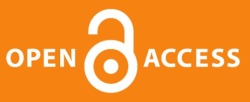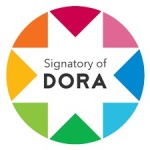Participatory management as a tool for water sustainability in Algeria: The case of the Algerian Hydrographic Basin Committee as an example.
Abstract
Due to the rarity, lack of watery supplies, water service plans and projects are held at bay. This fact negatively influences the well-being of people within a certain area and thus their productivity and health, their environment that is to say. Water supplies and access to water has recently been considered to be significant. As a matter of fact, it has become to be classifying criteria, an area that shows the extent to which a country is developed. There is, furthermore, an increasing concern about "water supplies" due to, as aforesaid, rarity of water on one hand, and the need for water in different areas on the other hand. Therefore, a clear plan and strategy that accounts for sustainable management of water suggests a thorough coverage of such management and processed surveillance. IN Algeria, the hydrographic basin in the desert, which is the fifth in the whole country, it has a poor surface water and also poor underground water. in addition to inappropriateness of water in this area (has been contaminated) and the huge amount of water lost while distribution , mixed with rain. What intensify the issue is lies on the buildings that are of dismal state, an issue also proposed. Our problematic is the extent to which sustainable management can assist the sustainable management and how affective it is to assist in utilizing the fifth source and preserving it in the surrounding area.
Downloads
References
. www.ar.genderandwater.org/redir/.../RG-arabic-0806.doc
- برنامج الأمم المتحدة، دليل المصادر في النوع الاجتماعي والمسار الرئيسي لإدارة المياه، نوفمبر 2006.
. البنك الدولي، إدارة شؤون الموارد المائية، واشنطن، 1997.
. Arman DOMINIQUE, L'eau en Danger , France, Avril 1996.
. F.Valiron, Gestion des Eaux Alimentation en Eau. Assainissement, (2 éme édition ; paris : Presses de l'école nationale des Ponts et chaussées, 1989), tome 02.
. قانون المياه رقم 83-17 المؤرخ في 16/07/1983 والمتمم بالأمر 96-13 المؤرخ في 15/06/1996.
. جيرشون فيدر وغي لومواني، "إدارة المياه بطريقة مستديمة"، مجلة التمويل والتنمية، المجلد31، العدد02، جوان1994.
. وزارة الموارد المائية، "خمس وكالات من أجل تسيير متكامل للموارد المائية"، 2000.
. الجزائر، رئاسة الحكومة، المرسوم التنفيذي رقم 96/472، المتعلق بإنشاء المجلس الوطني للماء الصادر في 18 ديسمبر 1996، العدد 81
. المراسيم التنفيذية رقم 96-297 إلى 283 المؤرخ في 26 أوت 1996، المتضمن إنشاء وكالات للأحواض الهيدروغرافية تغطي الإقليم الوطني، والمراسيم التنفيذية رقم 96 – 284 إلى 288 المتضمنة إنشاء خمس لجان للأحواض الهيدروغرافية.
. Agence de bassin hydrographique sahara, "Pour une Gestion Rationnelle et Durable des Ressources en eau au Sahara", Ouargla.
. Abderrazak KHADRAOUI, eaux et sols en Algérie, (Ouargla : édition E.T.I.W.O, 2001)
. جان خوري و واثق رسول آغا وعبد الله الدروبي، "الموارد المائية في الوطن العربي وآفاقها المستقبلية"، "في" المركز العربي : دراسات المناطق الجافة والأراضي القاحلة، بدون سنة نشر.
. Slimene BEDRANI et K.CHAHAT, L’eau et l’agriculture dans la Zone SASS : Quelques résultats issus du RGA, Agence de bassin hydrographique SAHARA. Le Colloque international sur les Ressources en eau souterraines dans le Sahara-CIRESS, Ouargla 12 et 13 décembre 2005.

This work is licensed under a Creative Commons Attribution-NonCommercial 4.0 International License.















